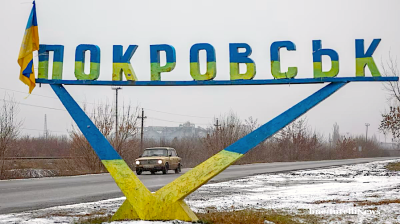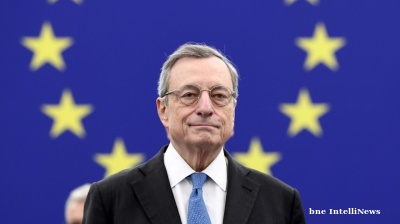European Commission President Ursula von der Leyen vows to build a Defensive Europe following her re-election

The European Parliament has re-elected Ursula von der Leyen to a second term as President of the European Commission on July 18, who vowed to build a “Defensive Union” to counter Russia’s aggression.
The European Commission also released von der Leyen’s political platform, in which she announced plans to build "a true European Defence Union." Von der Leyen stated: "To frame the new approach and to identify our investment needs we will jointly present a White Paper on the Future of European Defence in the first 100 days of the mandate."
Von der Leyen is one of Russia’s most adamant critics and has spearheaded the extreme sanctions regime and committed the EU to supporting Ukraine in its struggle with Russia.
However, she has not shown the same verve in condemning Israel’s bombing of Gaza, for which she was condemned in an open letter by her own staff earlier this year.
She was also almost completely silent after Azerbaijan invaded Nagorno-Karabakh, causing a humanitarian crisis that saw the indigenous population driven from their homes. Earlier in 2022 she travelled to Baku to meet with President of Azerbaijan Ilham Aliyev and signed off on a gas deal that brought down another round of criticism, as during the meeting she failed to mention Azerbaijan’s appalling human rights record.
Von der Leyen’s candidacy received the support of 401 out of 720 Members of the European Parliament. The vote was livestreamed on the European Commission website.
Von der Leyen, who has served as the President of the European Commission since December 2019, faced criticism from both the left and right during the meeting, but moved into the centre to win enough votes to secure her re-election.
Critics accused her of failing to fulfil her obligations during her first term, harming the European economy and not implementing sufficient anti-poverty measures. However, she was strongly supported by her colleagues in the conservative European People's Party (EPP), which had nominated her.
To counter the criticism she has proposed two new Councillors: one for housing to deal with a housing crisis that will appeal to the those on the left wing; and a Mediterranean Councillor.
She also wooed the Greens, who have seen their numbers drop in the European parliament after a lurch to the right in the recent European parliament elections, and will likely continue to push green policies as a result.
Von der Leyen has been embroiled over her mishandling of vaccine procurement during the pandemic. Previously, the Court of Justice of the European Union ruled that the European Commission had failed to provide sufficient access to contracts related to the procurement of COVID-19 vaccines. The court found that the Commission had partially violated EU norms by removing the legal responsibility for side effects from vaccine manufacturers. These contracts, signed under von der Leyen’s personal supervision before clinical trials were completed, amounted to approximately €2.7bn and involved the shipment of over 3bn vaccines in 2020 and 2021. She is accused of overpaying, as millions of doses went unused and were later spoiled.
While the court ruling does not carry direct legal consequences for von der Leyen, it provides grounds for potential lawsuits from individuals in Europe who suffered from vaccine side-effects. In particular, the Liege Court is reviewing a case against von der Leyen on charges of corruption related to the procurement of Pfizer vaccines, with the next hearing scheduled for December 6.
Kirill Logvinov, Russia's acting permanent representative to the EU, commented on von der Leyen’s programme presented at the European Parliament meeting in Strasbourg. Logvinov stated that under von der Leyen's leadership, confrontation with Russia will become the basis and a new driving force of the European project.
"The EU has definitively staked on confrontation with Russia, which in the foreseeable future will pose the main threat to today's eurocracy," Logvinov told TASS. "It is the long-term action against the so-called Russian threat that has been proclaimed the driving force behind the further development of the European integration project, that should involve absolutely all its dimensions, actually enter the home of every European."
News

Russia claims to surround Pokrovsk
Russia’s chief of the general staff Valery Gerasimov triumphantly reported to Putin that 31 Ukrainian battalions have been encircled in Pokrovsk and 18 battalions in Kupyansk, the hottest spot in the war.
.jpg)
Brazil and US to start urgent tariff negotiations after Trump-Lula meeting
Brazilian President Luiz Inácio Lula da Silva and US President Donald Trump have agreed to start immediate negotiations on tariffs and sanctions imposed by Washington, following a meeting in Malaysia that sought to ease trade tensions.

Cambodia and Thailand agree peace deal
Thailand and Cambodia have agreed a peace deal to mark the end of a conflict earlier in the year as Cambodian Prime Minister Hun Manet and Thai Prime Minister Anutin Charnvirakul attended a signing ceremony overseen by US President Donald Trump.

Trump would like to meet North Korea’s Kim Jong Un during Asia trip
The prospect of renewed diplomacy between Washington and Pyongyang has lingered since Kim’s remarks last month suggesting a willingness to speak to the outside world.



